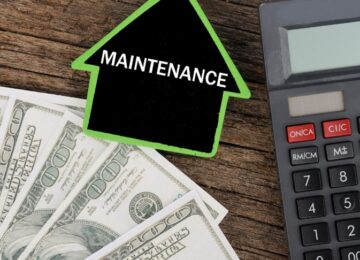The accounting industry has been undergoing a significant transformation in recent years, thanks to the rapid advancement of technology and the rise of automation. With the help of automation tools and software, accountants can streamline their workflow, reduce manual errors, and increase efficiency and accuracy in their work.
Automation in Accounting
Automation in accounting refers to the use of technology and software to automate various accounting tasks and processes. These tasks include data entry, bookkeeping, financial reporting, tax preparation, and many others. Automation tools and software can help accountants save time, reduce errors, and focus on more value-adding tasks.
One of the most popular automation tools in accounting is cloud-based accounting software. Cloud-based accounting software allows accountants to access financial data from anywhere and at any time.
It also automates many accounting tasks, such as bank reconciliation, invoicing, and expense tracking. With cloud-based accounting software, accountants can collaborate with their clients in real-time, share financial data securely, and improve communication.
Another popular automation tool in accounting is robotic process automation (RPA). RPA is a software that automates repetitive, rule-based tasks, such as data entry, invoice processing, and report generation.
RPA can help accountants save time and reduce manual errors, as it eliminates the need for manual data entry. RPA can also improve accuracy and consistency in accounting tasks, as it follows a predefined set of rules.
Maximising Efficiency and Accuracy Through Automation
Automation can help accountants maximise efficiency and accuracy in their work. Here are some ways accountants can use automation to improve their workflow:
- Automate Data Entry
Data entry is a time-consuming and error-prone task that can take up a significant amount of an accountant’s time. By automating data entry, accountants can save time and reduce manual errors.
Cloud-based accounting software and RPA can automate data entry tasks, such as bank reconciliation, invoice processing, and expense tracking.
- Automate Financial Reporting
Financial reporting is a critical task for accountants, as it provides insights into a company’s financial performance. However, financial reporting can be a time-consuming and complex task that requires a high level of accuracy.
Accountants can save time and minimise errors by automating financial reporting. Financial reporting chores like the creation of income statements, balance sheets, and cash flow analyses can be automated with cloud-based accounting software and RPA.
- Automate Tax Preparation
Tax preparation is another critical task for accountants, as it ensures compliance with tax laws and regulations. However, tax preparation can be a time-consuming and complex task that requires a high level of accuracy.
Cloud-based accounting software and RPA can automate tax preparation tasks, such as tax return preparation, tax filing, and tax payment.
- Automate Client Communication
Communication with clients is an essential aspect of accounting, as it helps build trust and foster strong relationships. However, communication can also be a time-consuming task that takes away from other value-adding tasks.
Accounting professionals can save time and increase productivity by automating client interactions. Automating client contact duties like sending bills, reminders, and reports is possible with cloud-based accounting software.
- Automate Workflow Management
Workflow management is critical for accountants, as it helps ensure that tasks are completed on time and within budget. However, workflow management can be a complex task that requires constant monitoring and adjustment. By automating workflow management, accountants can save time and reduce errors.
Cloud-based accounting software can automate workflow management tasks, such as task assignment, task tracking, and deadline reminders.
Conclusion
Automation is reshaping the accounting industry by enabling accountants to streamline their workflow, reduce manual errors, and increase efficiency and accuracy in their work.
Cloud-based accounting software and RPA are popular automation tools that can help accountants save time, reduce errors, and focus on more value-adding tasks. By automating data entry, financial reporting, tax preparation, client communication, and workflow management, accountants can maximise efficiency and accuracy in their work.
The accounting industry is evolving rapidly, and accountants who embrace automation will be better equipped to meet the demands of their clients and stay ahead of the competition.











